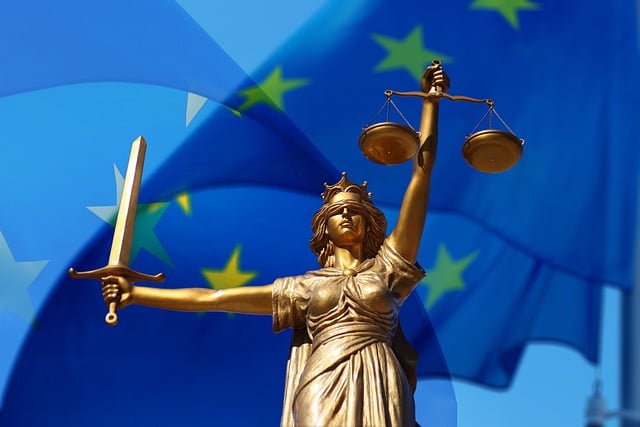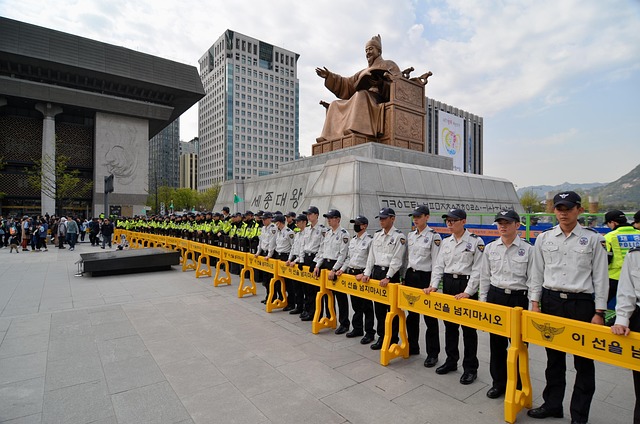Plea negotiations, involving prosecutors, defendants, and attorneys, significantly shape criminal trial outcomes by enabling agreements that can lead to charge dismissals or reduced sentences, especially in cases like white-collar crimes. Both prosecution and defense strategize to secure favorable terms while balancing efficiency and fairness. Ethical considerations are vital during these talks, influenced by crime severity, evidence, and strategic choices, ultimately affecting the broader criminal justice system, as seen in white-collar defense cases. Understanding these negotiations' impact is crucial for achieving a balanced and just legal process.
Criminal law enforcement involves intricate processes that significantly shape trial outcomes, with plea negotiations being a pivotal one. This article delves into the multifaceted dynamics of plea negotiations, exploring the process, key players involved, and their impact on trial results. We analyze the benefits and drawbacks for both prosecutors and defendants while shedding light on the ethical considerations guiding legal professionals. Understanding how plea negotiations affect trial outcomes is crucial for navigating this complex landscape effectively.
- Understanding Plea Negotiations: The Process and Key Players
- Impact on Trial Outcomes: Benefits and Drawbacks for Both Parties
- Ethical Considerations and the Role of Legal Professionals
Understanding Plea Negotiations: The Process and Key Players

Plea negotiations are a critical phase in criminal law enforcement, where the outcome can significantly impact trial results. This process involves a complex interplay between prosecutors, defendants, and their respective legal teams. The key players include the district attorney’s office, representing the prosecution, and the defense attorneys advocating for their client’s interests. During these negotiations, both sides discuss potential agreements, often leading to plea deals that could result in a complete dismissal of all charges or alternative sentences.
Understanding how plea negotiations affect trial outcomes is essential. For defendants, especially those facing serious offenses like white-collar crimes, negotiating a plea bargain can offer a more favorable outcome than going to trial. This strategy allows for a possible resolution without the high-stakes risks associated with jury trials. However, it’s crucial to approach these discussions strategically, ensuring that any agreement is in the best interest of the defendant and their respective business or personal interests.
Impact on Trial Outcomes: Benefits and Drawbacks for Both Parties

Plea negotiations play a pivotal role in shaping trial outcomes, offering both advantages and disadvantages for all parties involved. For the prosecution, entering into plea deals allows them to secure a guilty plea from the defendant, potentially saving time and resources compared to a lengthy trial. This strategy also enables prosecutors to focus on other cases, achieving extraordinary results in their respective business. However, the drawback lies in the risk of losing credibility with victims and the community if the negotiated sentence is perceived as too lenient.
On the defense side, plea negotiations provide an opportunity for a general criminal defense strategy. Attorneys can leverage these discussions to secure reduced charges or a lighter sentence for their clients, thereby mitigating potential consequences. While this process may lead to favorable outcomes, there is also a risk that defendants might accept deals without fully understanding the implications, which could have long-lasting effects on their lives. Thus, the balance between achieving extraordinary results and ensuring a fair process is crucial in how plea negotiations affect trial outcomes.
Ethical Considerations and the Role of Legal Professionals

In the realm of criminal law enforcement, ethical considerations play a pivotal role, particularly when it comes to plea negotiations. Legal professionals, such as prosecutors and defenders, have a duty to uphold the integrity of the justice system while advocating for their clients’ interests. The process of plea bargaining, where charges are reduced or dismissed in exchange for a guilty plea, requires delicate navigation through complex legal and moral territories. This strategy can significantly affect trial outcomes, potentially leading to more favorable results for both the prosecution and defense.
How plea negotiations unfold is influenced by various factors, including the severity of the crime, the strength of evidence, and the strategic decisions of both parties. These negotiations are not merely transactions; they reflect the interplay between criminal justice reform, advocacy, and the broader impact on the philanthropic and political communities. In the case of white-collar defense, for instance, legal professionals must consider not only the rights of the accused but also the societal implications, ensuring that their actions contribute to a balanced and just legal system.
Plea negotiations, a critical aspect of criminal law enforcement, significantly shape trial outcomes by offering both benefits and drawbacks to defendants and prosecutors. Understanding this process, involving key players like lawyers and judges, is essential in navigating the delicate balance between justice and efficiency. The ethical considerations that arise highlight the crucial role of legal professionals in ensuring fairness throughout these negotiations, ultimately affecting the integrity of the entire criminal justice system.






